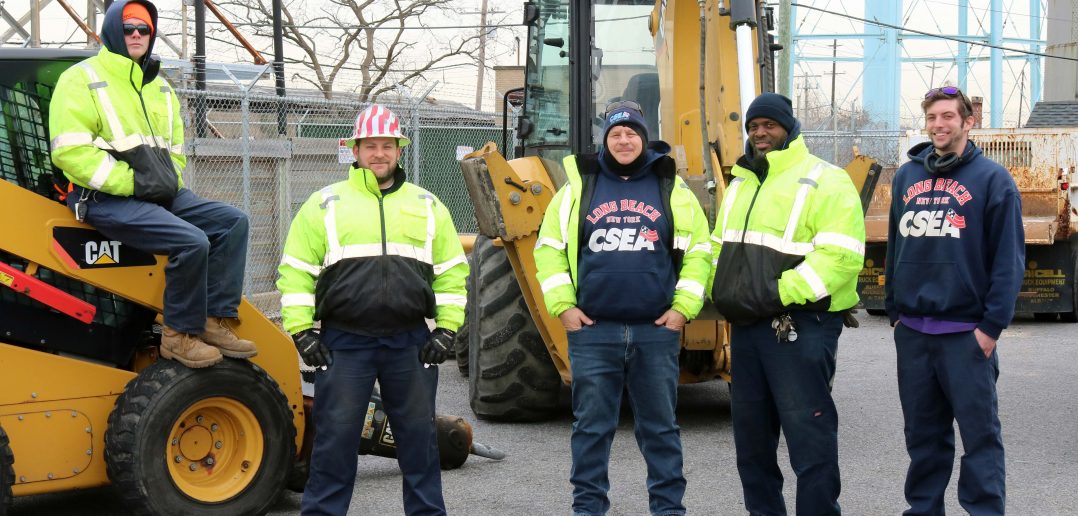LONG BEACH — Extreme weather conditions presents its fair share of environmental challenges, which is why it’s important to stay as safe as possible.
Your employer is responsible for providing the necessary equipment, training and procedures to keep you as safe as possible on the job, including outlining steps to help you care for yourself in extreme weather.
CSEA members employed at Long Beach Water Distribution are among our members who work outside year round and face extreme temperatures and weather conditions. The Water Distribution Department workers’ responsibilities include maintaining water mains, installing fire hydrants and installing insta-valves, which provide a means to install a permanent valve into a water main with no interruption of flow through the pipe and no reduction of line pressure.
Working in the bitter cold can make the water distribution workers’ typical responsibilities, which are already taxing, even more precarious.
“You have to dress properly,” said Supervisor of Water Transmission Michael Longin. “You need to have on long thermal underwear, fleece fitted jeans, hats, really anything that covers your skin.”
Longin noted any skin exposed to low temperatures will start to hurt.
This is especially important due to the length of time our members could be exposed to the cold.
“You could get frostbite and not realize it,” said Anthony O’Neill, who works at the water distribution department. “Usually, you go numb before it happens. Then, you take your glove off and you can see that your fingers have turned different colors.”
On the other end of the spectrum, there is extreme heat.
In that case, members bring tents with them, which they use for shading.
Members are also careful to bring plenty of water.
“I have a big cooler that I fill with water and bring to jobs, every day, “said Longin. “You really need to be hydrating in the cold weather, too, but especially when it’s hot.”
On the rare occasion that a member isn’t being mindful of maintaining a healthy body temperature, it can lead to a medical emergency.
“I’ve seen instances where [workers]start complaining of chest pains and need to be taken to the hospital due to dehydration,” said Longin.
To their credit, Longin says members keep a watchful eye on each other.
“If we see that a guy has been in [a confined space]for too long, we switch him out before he passes out,” said Longin. “If someone notices something, they say something. Help is here if you need it; don’t be a hero.”
“If you can, you should also try to get any hard labor done before, or after, the peak hours of the sun,” said O’Neill. “Professional athletes have died from heat stroke; it can happen to anybody.”
“So, try not to go as hard in the summer as you would in normal temperatures,” said Longin. “Monitor yourself a little bit more.”
The City of Long Beach also offers an annual overall safety precaution seminar that CSEA members attend. Another important resource is our union’s Occupational Safety and Health Department, which offers numerous resources and services to ensure your employer keeps you safe on the job.
Longin encourages members to speak up if there are ever any workplace issues that you need to be addressed. “A lot of times, supervisors don’t know everything about what we do,” said Longin. “So, if you’re feeling a certain way, always be vocal.”
— Wendi Bowie
Learn more about working safely in extreme temperatures, and
how your employer should keep you safe, at cseany.org/osh.




